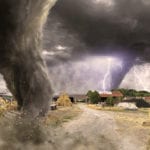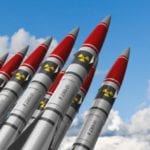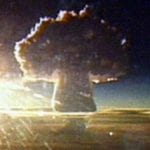 Movies and TV
Movies and TV  Movies and TV
Movies and TV  History
History 10 Extreme Laws That Tried to Engineer Society
 History
History 10 “Modern” Problems with Surprising Historical Analogs
 Health
Health 10 Everyday Activities That Secretly Alter Consciousness
 History
History Top 10 Historical Disasters Caused by Someone Calling in Sick
 Animals
Animals 10 New Shark Secrets That Recently Dropped
 Movies and TV
Movies and TV 10 Forgotten Realities of Early Live Television Broadcasts
 Technology
Technology 10 Stopgap Technologies That Became Industry Standards
 Weird Stuff
Weird Stuff 10 Wild Facts About Taxidermy That You Probably Didn’t Know
 Travel
Travel 10 Beautiful Travel Destinations (That Will Kill You)
 Movies and TV
Movies and TV 10 Box Office Bombs That We Should Have Predicted in 2025
 History
History 10 Extreme Laws That Tried to Engineer Society
 History
History 10 “Modern” Problems with Surprising Historical Analogs
Who's Behind Listverse?

Jamie Frater
Head Editor
Jamie founded Listverse due to an insatiable desire to share fascinating, obscure, and bizarre facts. He has been a guest speaker on numerous national radio and television stations and is a five time published author.
More About Us Health
Health 10 Everyday Activities That Secretly Alter Consciousness
 History
History Top 10 Historical Disasters Caused by Someone Calling in Sick
 Animals
Animals 10 New Shark Secrets That Recently Dropped
 Movies and TV
Movies and TV 10 Forgotten Realities of Early Live Television Broadcasts
 Technology
Technology 10 Stopgap Technologies That Became Industry Standards
 Weird Stuff
Weird Stuff 10 Wild Facts About Taxidermy That You Probably Didn’t Know
 Travel
Travel 10 Beautiful Travel Destinations (That Will Kill You)
Top 10 Tips for Surviving a Nuclear Winter
Nuclear war is not a scenario that most would aspire to live through. In the sixties, the Cuban Missile Crisis brought us dangerously close to the brink – but mankind has so far been fortunate enough not to experience a potential extinction event.
Nuclear Winter is in itself a theoretical concept; scientists believe that in the event of nuclear war, vast amounts of soot will be injected into the stratosphere and spread by winds across the planet, blocking out the sun and making the temperature plummet. Crops would wilt and die; animals would soon follow. The collapse of the food chain would lead to the extinction of the human race.
Nuclear Winter could last for years, or even decades; and while it exists, any humans who survived the nuclear war will find it impossible to reestablish civilization. The only way to ensure the survival of the human race, is to collect a manual of tips for surviving a nuclear winter.
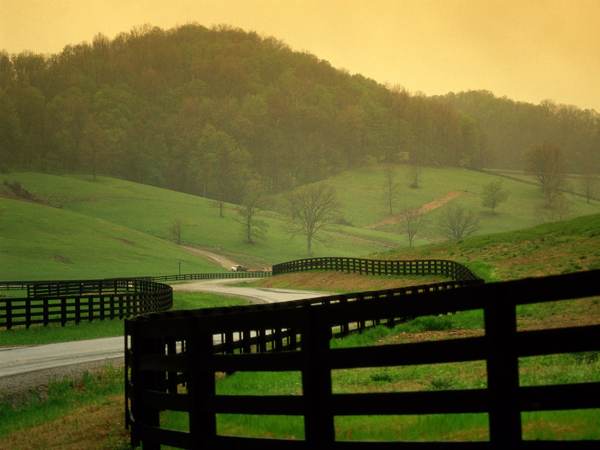
This may sound like something of a bogus entry, given that it cannot easily be helped, but the question of who survives the initial nuclear explosions will be decided by nothing more so than geographical location. Estimates made during the 1960s indicated that should Russia launch a fully committed assault on the United States, between 100-150million people would be killed by the initial detonations – over two thirds of the population at that time. Major cities will be rendered totally inaccessible, both by the blast and by the radiation which would accompany it. All in all, if you live in a city, you are almost certainly doomed – but if you live in the countryside, you have at least a moderate chance of initial survival.

This entry (and picture) may be somewhat controversial, but there are many solid reasons why religious beliefs could hinder the efforts of a potential nuclear war survivor. First of all, going to church every Sunday isn’t really priority number one after a nuclear holocaust. On a more serious note: in order to survive, you may have to perform acts which many religious (or simply moral) individuals would consider unthinkable (See #8). The survivor’s mindset must be decidedly Machiavellian: the world is now a free-for-all; issues of morality are secondary to staying alive by any means necessary.
If your religion bars you from eating certain foods, you may want abandon such dietary commitments and eat whatever you can find. Perhaps to help you abandon your faith, you might adopt the mindset that God (or any other deity) would have prevented a collapse of civilisation from occurring in the first place, if he/she really existed.

So you’ve survived the initial blast, and now you’re a country-dwelling atheist. What next? Well, consider for a moment your pets. Pets need food, water, and care – and there won’t be much loving going around during a nuclear winter. You aren’t going to survive long if every morsel of food is divided between you and Rex.
Those of a cold-hearted disposition may want to think about executing and devouring their pet(s), given that food will be extremely scarce. Most people however, will (I hope) find such thoughts revolting – so simply releasing the beloved animal into the wild may be a less sociopathic option. But in all seriousness, nuclear winter survivor: give up any hope of rescuing your goldfish. Small animals may as well just be disposed of, rather than consumed for sustenance – it will at least save them from a slow starvation in the future.
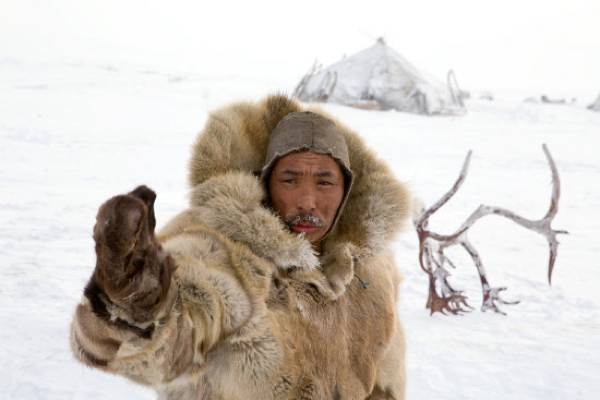
Time for some science: in the event of multiple nuclear warheads detonating over major cities, vast amounts of soot and dense smoke from the resultant fires would rise into the stratosphere, preventing sunlight from reaching much of Earth’s surface for years or even decades.
Surface temperatures would drastically decrease, and sub-zero conditions would be maintained indefinitely. In other words, the need for warm clothing cannot be understated – so you may want to scavenge some insulating coats if you don’t possess any already. Sadly, the perpetually freezing conditions aren’t the end of your worries; scientists have hypothesized a massive depletion of the ozone layer, meaning vast amounts of ultra-violet radiation would seep to the surface of the planet, causing deaths from skin cancer. Minimize these problems by avoiding sleeping out in the open, and always wear some kind of hood to shield the face from the bitter cold and the harmful UV rays.

If you live in a country were guns are readily available and legal to own, it shouldn’t be too difficult to arm up against robbers or potential cannibals (yikes). Desperate conditions may cause many survivors to steal food from other survivors, in order to prevent starvation. Looting your local gun store for supplies is a viable option for those in America (or any other country without significant gun control) – but watch out for the gun-toting store owner. Otherwise, you may want to grab some kind of knife for protection. In the months after the initial detonations, hunting would still be possible, because animals won’t yet have died off. Stock up on meat in the early stages if possible.

When all the big meaty animals have gone extinct in the years after nuclear war, it is inevitable that humans will resort to cannibalism to survive. In fact, you might want to consider cannibalism yourself at some point, if you’re starving and find yourself with a wholesome corpse in your vicinity.
As for other survivors: they’ll either try to help you, or try to eat you; needless to say it’s important to differentiate between the two. People who eat human meat tend to suffer symptoms of Kuru; a contamination of the brain which handily can cause very noticeable symptoms. For example, if the person walking towards you in the distance is lurching from side to side and struggling to walk in a straight line, it’s probably best to run away as they are either drunk or have Kuru. Other symptoms include uncontrollable shaking and creepy bursts of laughter in inappropriate situations. Kuru is untreatable and death usually occurs after one year of first contracting the disease, so don’t eat human meat – nuclear winter or not!

Introverts would thrive in a post-apocalyptic environment, at least compared to those who instinctively reach for their cell phones whenever they find themselves alone. Having a family around – especially if it includes children – is not a smart move, considering the scarcity of food. Ignore the cliché of antagonistic roaming gangs of “bandits” or “raiders”, which Hollywood spoon-feeds us in films like “The Road” and “The Book of Eli”. In reality, such groups would never be able to find enough food to sustain themselves in the long run. That’s not to say you should abandon (or cannibalize) your own family – but finding a large group to stick with is not a realistic option for those who want to avoid starvation.
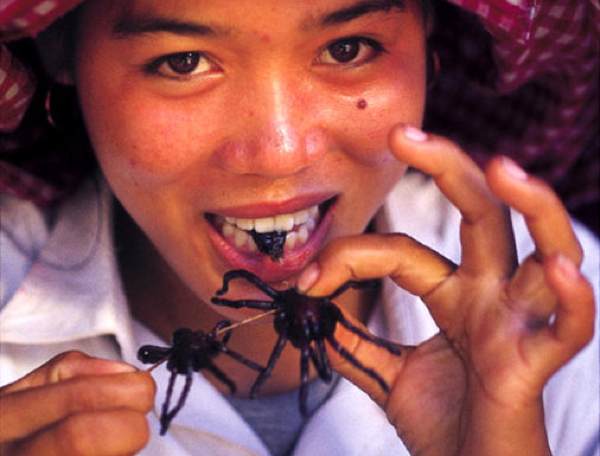
The drastically reduced sunlight and rainfall during a nuclear winter would render crops impossible to raise and kill off most plant life on Earth, in turn rendering many animals quickly extinct from a lack of food. Because of this, small insects such as ants, crickets, wasps, grasshoppers and beetles are among the most likely creatures to survive long term. They also happen to be fantastically dense protein sources to help maintain muscle mass: grasshoppers have the highest percentage with 20g of protein in every 100g. Crickets on the other hand are rich in iron and zinc, and ants are fantastic calcium sources. Overall insects may not taste as great as a bucket of fried chicken (you never know), but they at least can be considered preferable to starvation.
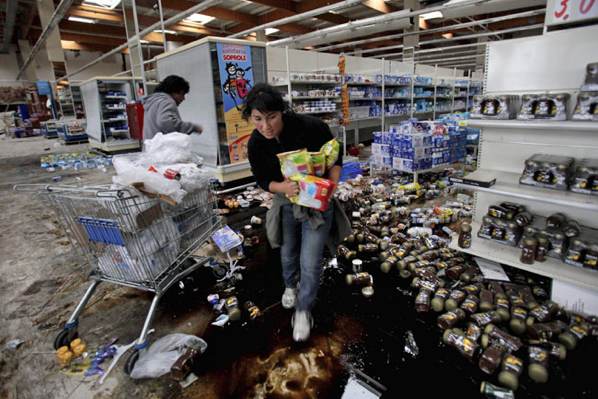
Perhaps this is one of the extremely rare enjoyable activities of a post-apocalyptic environment. Who wouldn’t want to be able to wander through a shopping mall, pilfering any desired object without suffering any legal retribution? Don’t get too excited, though: looting the cash registers is something of a pointless exercise, what with the collapse of civilisation and all. Instead focus on breaking into vending machines for food and drinks. Try emptying some waste bins for scraps if you are close to starvation, or look for canned foods which have an unlimited shelf life. You could also fairly easily scavenge clothes to help keep warm, and if your country has no gun control, you could find weapons to defend yourself.
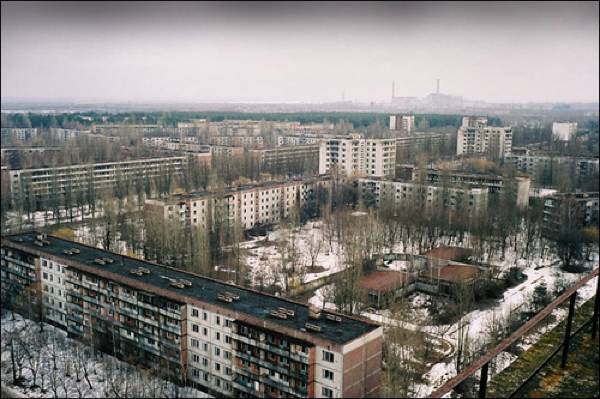
Pictured above is a ghost town called Prypiat, the location of the 1986 Chernobyl disaster which saw the city evacuated due to the massive radioactive contamination, caused by an explosion at the nuclear power plant. The catastrophe caused 31 immediate deaths from radiation poisoning, and hundreds more from various cancers due to exposure. To this day, the town is uninhabitable. Radiation levels are too high to sustain life, without putting it in peril. After a nuclear holocaust, the radiation levels of impact sites will most likely be significantly higher. Anyone who ventures inside major cities which have been directly bombed will contract radiation poisoning fairly quickly, and soon perish.

